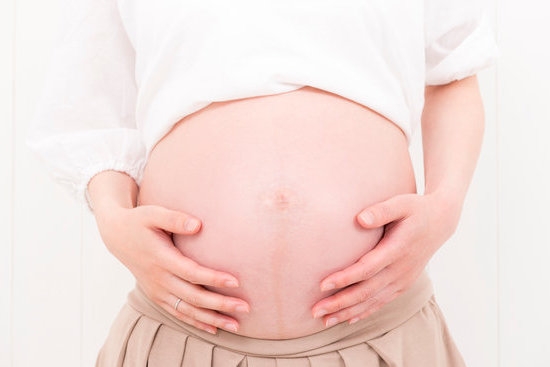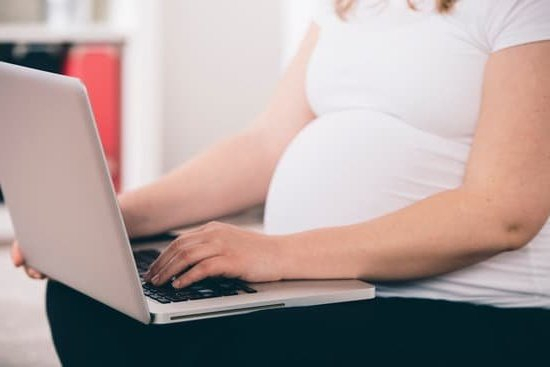Spotting in early pregnancy can be a source of concern for many expectant mothers. How long does spotting last in early pregnancy? This is a common question that arises among women who experience this phenomenon. In this article, we will delve into the understanding, causes, differentiation from menstrual bleeding, duration, factors affecting the duration, when to seek medical help, and treatment and management of spotting in early pregnancy.
Spotting in early pregnancy refers to light bleeding that occurs when a fertilized egg attaches itself to the lining of the uterus. It is usually pink or brown in color and can occur around the time of the expected period. Understanding why spotting occurs and what it signifies is important for expectant mothers.
Causes of spotting in early pregnancy can range from implantation bleeding to more serious issues such as miscarriage or ectopic pregnancy. It is crucial to differentiate between normal spotting and potential complications, which will be discussed further in this article. Additionally, we will explore the duration of spotting in early pregnancy and the factors that can affect its length.
Causes of Spotting in Early Pregnancy
Spotting in early pregnancy can be a cause of concern for many women, but it is essential to understand that it is not uncommon. There are several potential causes of spotting during the first trimester. One of the most common reasons for spotting in early pregnancy is implantation bleeding.
This occurs when the fertilized egg attaches itself to the lining of the uterus, typically around 10 to 14 days after conception. Implantation bleeding is usually light and does not last long.
Another possible cause of spotting in early pregnancy is changes in hormone levels. The surge in hormones, especially estrogen and progesterone, can lead to light bleeding or spotting. Additionally, cervical changes can also result in spotting during early pregnancy. An increase in blood flow to the cervix can lead to irritation and result in light bleeding.
It is important to note that while spotting can be a normal occurrence in early pregnancy, it can also indicate a more serious issue such as an ectopic pregnancy or a miscarriage. It is crucial for women experiencing spotting to seek medical attention to rule out any underlying complications and ensure the health and well-being of both mother and baby.
| Possible Causes | Description |
|---|---|
| Implantation Bleeding | Light bleeding when the fertilized egg attaches to the uterine lining |
| Hormonal Changes | Surge in hormone levels, especially estrogen and progesterone, leading to light bleeding or spotting |
| Increase in blood flow to the cervix causing irritation and resulting in light bleeding |
How to Differentiate Spotting From Menstrual Bleeding
Spotting in early pregnancy can be confusing for many women, as it may be mistaken for menstrual bleeding. It is important to be able to differentiate between the two in order to understand what is happening with your body. Here are some key differences between spotting and menstrual bleeding:
- Flow: Spotting typically involves very light bleeding or just a few drops of blood, while menstrual bleeding involves a consistent flow of blood over several days.
- Color: Spotting is usually light pink, brown, or even red, whereas menstrual blood is typically bright red.
- Duration: Spotting can last for a few hours to a couple of days, while menstrual bleeding lasts for an average of 3-5 days.
It is important to note that every woman’s experience with spotting and menstrual bleeding can vary, so these differences may not always be clear-cut. However, understanding these general variations can help you distinguish between the two.
If you are unsure whether you are experiencing spotting or menstrual bleeding, it is always best to consult with your healthcare provider. They can provide personalized guidance and support based on your specific circumstances.
In addition to understanding the differences between spotting and menstrual bleeding, it is also crucial to be aware of the potential causes of spotting in early pregnancy. Understanding the underlying reasons for this symptom can help provide clarity and peace of mind during this sensitive time.
Duration of Spotting in Early Pregnancy
Spotting in early pregnancy can be a source of great concern for many women. Understanding the duration of spotting in early pregnancy is important for reassurance and peace of mind. Many women may wonder: “How long does spotting last in early pregnancy?” The duration of spotting can vary from woman to woman, and it is essential to have a clear understanding of what is considered normal.
Normal Duration
Spotting in early pregnancy can last anywhere from a few hours to a few days. It is usually lighter than menstrual bleeding and may come and go. Some women may experience spotting for just a day or two, while others may have it for up to a week. However, if the spotting continues for an extended period or becomes heavier, it is important to seek medical advice.
Extended Duration
In some cases, spotting in early pregnancy may continue beyond the first trimester. This can be a cause for concern, as it may indicate an underlying issue such as a threatened miscarriage or an ectopic pregnancy. If the spotting lasts for more than a week or if it becomes increasingly heavy, it is crucial to consult with a healthcare provider as soon as possible.
Irregular Duration
It’s important to note that every woman’s body responds differently during pregnancy, so the duration of spotting can vary widely. Some women may experience irregular episodes of spotting throughout their first trimester, while others may not have any at all. If you are unsure about the duration of your spotting or if you have any concerns, always reach out to your doctor for guidance and support.
Understanding the duration of spotting in early pregnancy can help alleviate anxiety and provide valuable insights into what is considered normal during this crucial time. It is always best to consult with a healthcare professional for personalized advice and care tailored to your specific needs and circumstances.
Factors That Affect the Duration of Spotting
When it comes to spotting in early pregnancy, the duration can vary from woman to woman. The amount of time that spotting lasts can be influenced by several factors. These factors should be taken into consideration when trying to understand and manage spotting in the early stages of pregnancy.
One factor that can affect the duration of spotting is the implantation process. Implantation bleeding, which occurs when the fertilized egg attaches itself to the uterine lining, can cause spotting that may last for a few hours to a couple of days. This is typically one of the first signs of pregnancy and can occur around 6-12 days after conception.
Another factor that may impact how long spotting lasts in early pregnancy is the overall health and well-being of the pregnant woman. Women who have underlying health conditions or are experiencing high levels of stress may find that their spotting lasts longer than those who are in good health and managing their stress effectively.
Additionally, certain lifestyle factors such as diet, exercise, and rest can also play a role in the duration of spotting. A balanced diet, regular exercise routine, and adequate rest can contribute to overall reproductive health and may help reduce the duration of spotting in early pregnancy.
| Factors That Affect Spotting Duration | Impact on Spotting Duration |
|---|---|
| Implantation Process | May cause spotting for a few hours to a couple of days |
| Overall Health and Well-being | Underlying health conditions or high stress levels may lengthen spotting duration |
| Lifestyle Factors (diet, exercise, rest) | A balanced diet, regular exercise routine, and adequate rest may reduce spotting duration |
When to Seek Medical Help for Spotting in Early Pregnancy
Spotting in early pregnancy can be a cause of concern for many women, and knowing when to seek medical help is crucial for ensuring the safety of both the mother and the baby. While spotting can be a normal occurrence in early pregnancy, there are certain signs and symptoms that indicate the need for medical attention.
Here are some factors to consider when deciding whether to seek medical help for spotting in early pregnancy:
- Amount of blood: If the amount of blood is more than just light spotting or if it is similar to a menstrual period, it is important to consult a healthcare provider.
- Pain: Severe abdominal pain, cramping, or lower back pain accompanying the spotting may indicate a possible complication and should prompt immediate medical attention.
- Duration: If the spotting continues for an extended period of time, especially if it persists for more than a few days or increases in intensity, it is advisable to seek medical help.
It is essential for pregnant women experiencing spotting to listen to their bodies and trust their instincts. If they feel that something is not right or if they are worried about the spotting, reaching out to a healthcare professional can provide reassurance and appropriate guidance.
Ultimately, every woman’s experience with spotting in early pregnancy may vary. However, being proactive about seeking medical help when necessary can ensure the best possible outcome for both the mother and her developing baby.
Treatment and Management of Spotting in Early Pregnancy
Spotting in early pregnancy can be a cause for concern for many women. While it is a common occurrence, it is important to understand how to properly manage and treat spotting during this delicate time. Proper treatment and management can help alleviate anxiety and ensure the health of both the mother and baby.
Seeking Medical Advice
The first step in the treatment and management of spotting in early pregnancy is to seek medical advice. It is crucial to consult with a healthcare provider as soon as spotting occurs. A healthcare provider can conduct a thorough examination, including an ultrasound, to determine the cause of the spotting and provide appropriate guidance on how to manage it.
Rest and Relaxation
In cases of spotting in early pregnancy, it is often recommended for women to get plenty of rest and avoid strenuous activities. Stress or physical exertion can exacerbate spotting, so taking time to relax and prioritize self-care is essential. This may also include reducing or avoiding sexual activity until the cause of the spotting has been determined by a healthcare professional.
Follow-Up Care
After seeking initial medical advice, it is important for women experiencing spotting in early pregnancy to follow up with their healthcare provider as directed. This may involve additional ultrasounds or blood tests to monitor the progression of the pregnancy and ensure that both the mother and baby are healthy. Adhering to any prescribed treatment plan or medication regimen is crucial for proper management of spotting in early pregnancy.
Overall, proper treatment and management of spotting in early pregnancy involve seeking medical advice promptly, prioritizing rest and relaxation, and following up with healthcare providers for comprehensive care. Each woman’s experience with spotting during early pregnancy may differ, so it’s important to individualize care under the guidance of a trusted healthcare professional.
Real-Life Experiences and Stories of Spotting in Early Pregnancy From Other Women
Experiencing spotting in early pregnancy can be a cause of concern for many women. It can lead to increased anxiety and worry about the health of the pregnancy. However, it is important to note that spotting can be common and does not always indicate a problem. Many women have shared their real-life experiences and stories of spotting in early pregnancy, shedding light on the duration and outcomes of their own situations.
For some women, spotting may last only a few hours or a day, while for others it may continue for several days or even weeks. The duration of spotting in early pregnancy can vary from woman to woman.
Some women have reported light spotting for one or two days, while others have shared their experiences of spotting lasting up to a week before subsiding. These accounts illustrate that there is no set timeline for how long spotting will last in early pregnancy, as it differs based on individual circumstances.
In reading these real-life experiences and stories, it is evident that the duration of spotting in early pregnancy varies widely among women. While some may experience only brief episodes of spotting, others may endure it for a longer period.
It is important to remember that every woman’s body and pregnancy are unique, so the duration of spotting can differ for each individual. If you are concerned about how long your spotting has lasted or if it seems excessive, consult with your healthcare provider for personalized guidance and support.
Conclusion and Key Takeaways From the Blog Post
In conclusion, spotting in early pregnancy can be a cause of concern for many women, but it is important to understand that it is a relatively common occurrence. As we have discussed, spotting can be caused by a variety of factors, including implantation, hormonal changes, and even irritation to the cervix. Differentiating between spotting and menstrual bleeding is crucial in order to ease any worries or anxieties.
When it comes to the duration of spotting in early pregnancy, it can vary from woman to woman. Some may experience it for just a day or two, while others may have it for several weeks. Factors such as overall health, hormonal imbalances, and physical activity can all play a role in determining how long the spotting lasts.
If you are experiencing spotting in early pregnancy and are concerned about its duration or frequency, it is always best to seek medical help. Your healthcare provider can offer advice and guidance on whether your symptoms are normal or if further evaluation is necessary. Remember that every pregnancy is unique, and what may be normal for one person may not be for another. It’s essential to listen to your body and seek professional assistance when needed.
As with any aspect of pregnancy, it’s crucial to stay informed and aware of your body’s changes. By understanding the causes of spotting, differentiating it from menstrual bleeding, recognizing potential factors that affect its duration, and knowing when to seek medical help if necessary, you will be better equipped to navigate this aspect of early pregnancy with confidence and peace of mind.
Frequently Asked Questions
How Many Days of Spotting Is Normal in Pregnancy?
Spotting in pregnancy can be normal and may last for one to two days. However, any spotting that lasts longer or is accompanied by pain should be discussed with a healthcare provider.
What Does the Spotting Look Like in Early Pregnancy?
Spotting in early pregnancy can appear as light pink or brown discharge. It is usually much lighter than a typical menstrual period and does not require a sanitary pad or tampon.
When Does Pregnancy Spotting Start and End?
Pregnancy spotting can start around the time of implantation, which is typically 6 to 12 days after ovulation. It may continue intermittently throughout the first trimester but should not be heavy or accompanied by severe pain. If it persists, medical advice should be sought.

Welcome to my fertility blog. This is a space where I will be sharing my experiences as I navigate through the world of fertility treatments, as well as provide information and resources about fertility and pregnancy.





